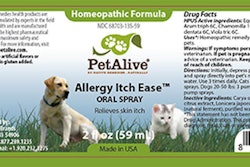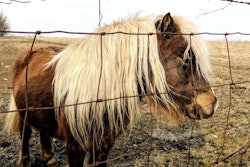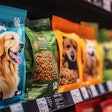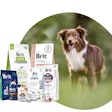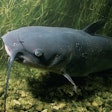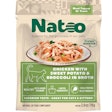
The herbicide glyphosate was detected in all dog and cat foods tested by researchers at Cornell University. However, the herbicide, commonly known by Monsanto’s brand name Round-up, appeared at levels equivalent to concentrations considered safe for humans.
“While the levels of glyphosate in pet foods surprised us, if a human ate it every day, their glyphosate exposure would still be well below the limits currently deemed safe,” Anthony Hay, Ph.D., an associate professor of microbiology and study co-author said in a press release.
Experiment tested for glyphosate in pet food
All 18 pet foods were commercially available and formulated with vegetable and meat ingredients. One product was certified GMO-free, which is surprising since glyphosate is most frequently used on crops with engineered tolerance of the herbicide.
The scientists tested three products for within-bag variation and six for lot-to-lot variation. While they found little within-bag variation, half of the products tested varied in herbicide concentration from lot to lot.
Crude fiber content significantly correlated with glyphosate concentration, but crude protein and crude fat content did not. This suggests that plant ingredients carried the glyphosate residues.
Researchers estimated that the average daily intakes by animals consuming feeds containing the median glyphosate concentration would result in exposures equivalent to 0.68 to 2.5 percent of the Allowable Daily Intake (ADI) for humans in the United States and European Union. Those ADIs are 1,750 and 500 microgram per kilogram respectively. However, pets eating the most contaminated of the pet foods would receive exposures from 7.3 to 25 percent of those ADIs.
The concentration of glyphosate in the tested dog and cat foods would likely result in pet exposures at four to 12 times higher than that of humans on a per kilogram basis. However, the scientists noted that little is known about the effects on glyphosate on cats and dogs.
The journal Environmental Pollution published the results of the study “Detection of glyphosate residues in companion animal feeds.”



